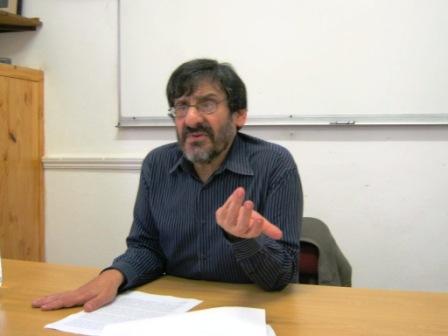
The Democratic Alliance (DA) will get part of what it wants. But not now. And not because of anything it does. The DA’s call for a political realignment has been seen as a move to unite opposition parties behind it. But unity is neither a new idea nor one that is likely to strengthen opposition parties — the electoral system means that the vote is not split and a combined opposition will do no better than the present one. In fact, it may do worse.
Opposition voters now enjoy a choice between parties: if the opposition merges into one big party, some may decide that their choice is no longer available and stay at home. In any event, attempts to unite the opposition usually promote not unity but quarrelling over who is absorbing whom.
When a quarter of 1% of the vote gets a seat in Parliament, there will always be parties who prefer to go it alone and opposition unity will always be limited.
But there is more to what the DA is saying — it also wants to persuade "constitutionalists" in the African National Congress (ANC) that they belong with the current opposition.
The claim that the DA has a monopoly on constitutional values — or even that everyone in the official opposition believes in those values — owes more to rhetoric than reality. It also misreads the divisions in the ANC: members of the governing party might agree with the DA that corruption and antidemocratic pressures are a problem in the ANC. But that does not make them DA soul mates. To name but one example — former minister Pallo Jordan, who called for a new ANC leadership on these pages last week, has very little in common with the DA. The same can be said for most ANC members who are unhappy with its direction.
Besides which, political identities matter and ANC politicians know that being seen to endorse the DA is injurious to their credibility: even if there are ANC members who share some DA positions, they will not be eager to be seen in the company of a party that represents a very different tradition.
So ANC members are not about to leave it for the DA or a united opposition.
So, if this is what realignment means, it is highly unlikely. But realignment may mean something else, which is why the DA is sure to get its wish that the current mould of our politics be broken.
The likely shift will be triggered not by the DA but by events in the ANC.
To say that the ANC is divided is to state the obvious. The divisions are varied but, at the national level, there is a contest for control between a nationalist group, which wants much more to be done to ensure a greater black role in business and the professions, and its opponents, a loose alliance that stretches from the Congress of South African Trade Unions and the South African Communist Party through to those who the DA calls "constitutionalists".
This contest will not come to a head at the ANC’s elective conference in Mangaung this year — the only two candidates who can win the ANC presidency, Jacob Zuma and Kgalema Motlanthe, are not allied to either faction. But the showdown that will be averted this time could well happen at the next ANC conference in 2017. If it does, and one of the two factions wins, it is possible that the losing group will find itself banished to the margins of the governing party. It could then decide that it has no political future in the ANC and leave to form a new party.
An ANC split triggered in this way would be far more substantial than the one that produced the Congress of the People (COPE). The effect could be to ensure that two parties would be competing seriously for the current ANC vote and that neither could win a majority — in some provinces if not nationally. And that would mean a need for coalition politics, which opposition parties hoped would emerge when COPE was formed but which did not because the breakaway was not strong enough to threaten the ANC’s majority. Opposition parties would then become important as potential coalition partners. This would be likely to begin a ripple effect that would change both the governing party and the opposition and ensure vigorous competition to control national and provincial governments.
Whatever opposition parties say publicly, they are far more likely to prosper if they begin to prepare themselves for this realignment rather than pinning their hopes on a fruitless attempt to woo sections of the ANC. Part of that adjustment would need to be a recognition that the winning coalition would need to be in touch with the majority of voters — and that, for all the hype about its gains among black voters, the DA has a way to go to adjust to becoming a potential coalition partner of one of the ANC factions.
A realignment will, therefore, depend not only on a split in the ANC but on the willingness of opposition parties to adjust to the possibilities this would present.
• Friedman is director of the Centre for the Study of Democracy at Rhodes University and the University of Johannesburg. This article was published on Business Day online.
